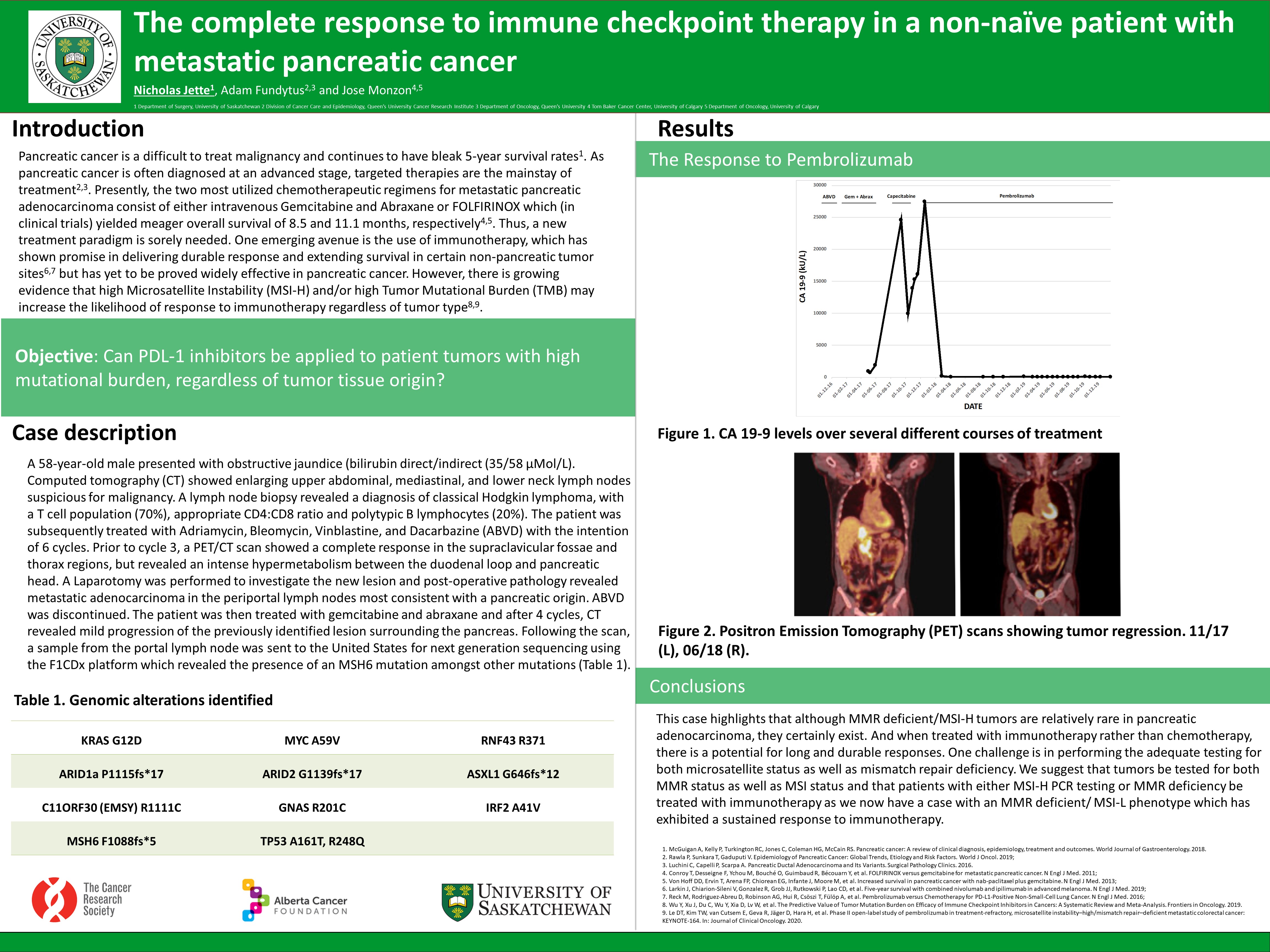
A2.8: The complete response to immune checkpoint therapy in a non-naïve patient with metastatic pancreatic cancer
Nicholas Jette, Adam Fundytus, Jose Monzon
Pancreatic cancer is a difficult to treat malignancy and continues to have bleak 5-year survival rates. As pancreatic cancer is often diagnosed at an advanced stage, targeted therapies are the mainstay of treatment. Presently, the two most utilized chemotherapeutic regimens for metastatic pancreatic adenocarcinoma consist of either intravenous Gemcitabine and Abraxane or FOLFIRINOX which (in clinical trials) yielded meager overall survival of 8.5 and 11.1 months, respectively. Thus, a new treatment paradigm is sorely needed. One emerging avenue is the use of immunotherapy, which has shown promise in delivering durable response and extending survival in certain non-pancreatic tumor sites but has yet to be proved widely effective in pancreatic cancer. However, there is growing evidence that high Microsatellite Instability (MSI-H) and/or high Tumor Mutational Burden (TMB) may increase the likelihood of response to immunotherapy regardless of tumor type. Here, we present a case of a patient with advanced metastatic and chemotherapy refractory MMR-deficient pancreatic adenocarcinoma who experienced a profound and complete response to pembrolizumab monotherapy. This study suggests that underlying DNA repair deficiencies in tumors may induce sensitivity to immunotherapies regardless of tissue origin, extending potential applications for these emerging drugs.
